Share
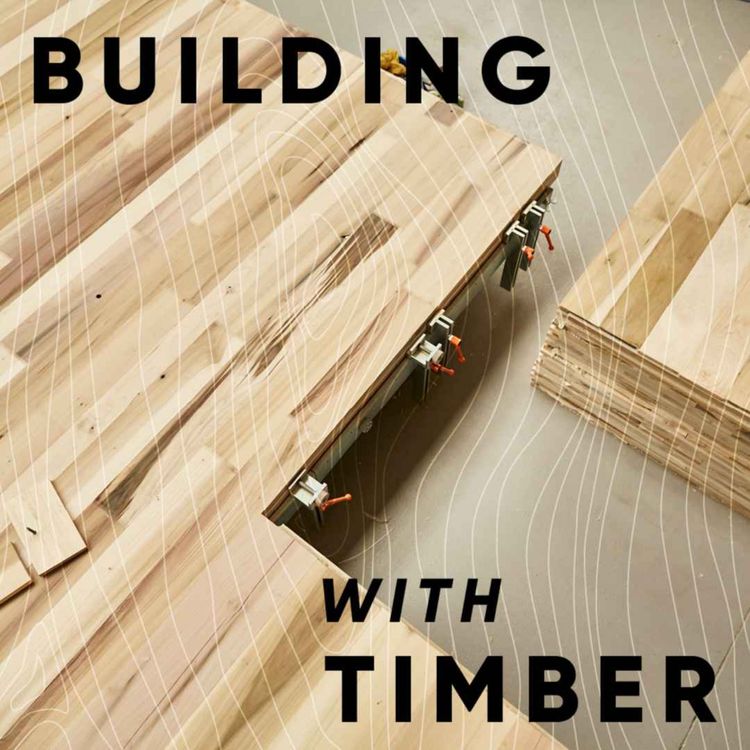
Words on Wood
S2E1: Building with Timber with engineer Andrew Lawrence and architect Lina Ghotmeh
This second season of Words on Wood sees Disegno’s editors Oli Stratford and India Block navigate the intersections between the worlds of forestry and design and architecture, focusing in on topics including timber construction; experimental uses of wood and cellulose; a world wide timber tracing network; and a look at how designers and makers are bringing fresh relevance to traditional woodcraft practices.
With architecture under more pressure than ever to improve the sustainability of buildings, Words on Wood looks at the potential for timber structures to reshape the field. Given the opportunities and challenges facing the construction of tall timber buildings, what role does wood have to play in the future of our built environment? Engineer Andrew Lawrence and architect Lina Ghotmeh discuss the complexities of the issues.
More episodes
View all episodes
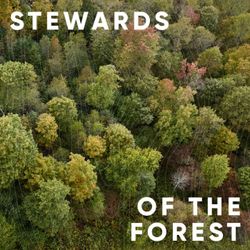
8. S4E6: Stewards of The Forest
32:32||Season 4, Ep. 8Forests take up about 30% of the earth’s surface and come in many shapes, sizes and types. From chilly boreal forests in the north, to temperate forests, dry forests, mangroves, rainforests and more, each forest has specific needs and nuances, and faces its own ecological challenges. Around the world, there are communities and teams of people who oversee forests, ensuring they regenerate and survive. Commercial foresters, indigenous tribes and local foresters all care for them in different ways: some are managed through planting; others use low intensity forestry techniques; and others are studying how the careful removal of trees can, in some instances, benefit forests overall. In this episode, hosts Oli Stratford and Evi Hall speak to Jim Smalls and Mike Williams of the U.S. Forest Service, former forestry consultant at the Architectural Association Jez Ralph, and designer Ash Pales to ask what caring for a forest on a day-to-day basis actually looks like and how design can play a meaningful role in promoting forest health and sustainable management.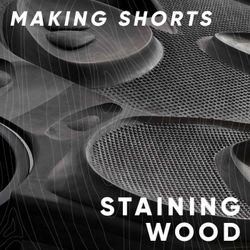
7. Making Shorts: Staining wood
13:53||Season 4, Ep. 7Staining wood is a complex and often laborious process that requires careful thought from designers and makers. Considering the complexities involved, and the fact that natural wood is beautiful in and of itself, this Making short explores the benefits wood staining can offer for designers.When done right, staining beautifully enhances the intricate and unique characteristics of wood. To elaborate further on this, architect, designer and educator, Giles Tettey Nartey, joins this episode to discuss why wood stain is an integral part of the design and narrative behind his pieces Interplay and Communion, as well as the process involved to achieve the desired finish.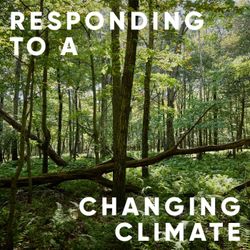
6. S4E5: Responding to a changing climate
30:05||Season 4, Ep. 6We’re probably all aware that climate change is having, and will have, a big effect on our forests. Increasing levels of carbon dioxide in the atmosphere and rising temperatures give way to adverse consequences such as droughts and fires, causing rapid tree mortality rates. So, how can we plan for the future to ensure these forests, in the face of climate collapse, are around for future generations?Joined by Leander Anderegg, Assistant Professor at the University of California; Ron Waukau, Forest Manager for Menominee Tribal Enterprises; and Marianne Goebl, Managing Director of Artek, this episode asks how we can manage forests in response to rapid, and longer term, changes precipitated by climate collapse, and explores design’s relationship with climate change, questioning how the decisions designers and architects make can impact forests.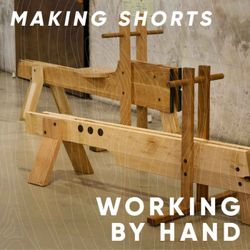
5. Making shorts: Working by hand
15:30||Season 4, Ep. 5Trees have been a principal building material for most of human history, with archaeological findings showing that humans were using stone axes as early as 40,000 years ago.With the advent of machinery during the Industrial Revolution making woodworking more efficient and accessible, this Making short episode asks why a designer today might opt for hand working over industrialised techniques. Host Evi Hall speaks to industrial and product designer duo Inma Bermúdez and Mortiz Krefter about why they decided to employ hand working techniques in the making of The Lost Herd, a series of animal-depicting wooden furniture sculptures.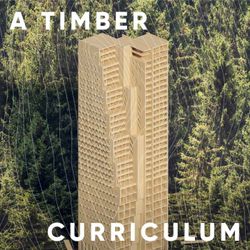
4. S4E2: A Timber Curriculum with Judith Lösing, Hanif Kara and Kenn Busch
23:08||Season 4, Ep. 4Our next instalment of Words on Wood revisits education, this time examining whether there is a need for a more robust curriculum around timber and its properties within architecture courses. The guests all straddle the architectural and education spaces and bring some really good insights into areas that are working, and some not so well, within architectural education. Oli and Evi are joined by Judith Lösing, teacher at the AA and director of East Architecture, Kenn Busch , founder of Material Intelligence and Climate Positive Now and Hanif Kara, co-founder of AKT-II and professor at Harvard GSD.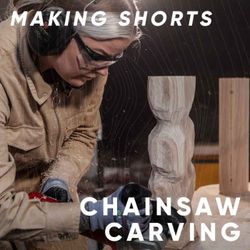
3. Making shorts: Chainsaw carving
14:44||Season 4, Ep. 3Building on the success of previous seasons’ ‘Tree Shorts’, this season introduces a new series of ‘Making Shorts’. These bite-sized episodes zoom into production techniques for timber, providing concise case studies through interviews with designers on the making processes behind specific projects. In this episode, we speak with Norwegian designer-maker Anna Maria Øfstedal Eng about creating furniture with a chainsaw and her experience working with American maple in a recent AHEC project.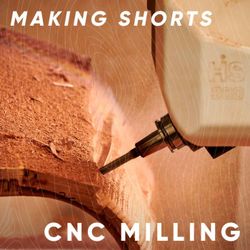
2. Making shorts: CNC milling
19:23||Season 4, Ep. 2Building on the success of previous seasons’ ‘Tree Shorts’, this season introduces a new series of ‘Making Shorts’. These bite-sized episodes zoom into production techniques for timber, providing concise case studies through interviews with designers on the making processes behind specific projects. Travelling to Australia, the first Making Short of the season focuses on CNC milling, tracing its connections to traditional hand carving methods. Designer Trent Jansen and Tanya Singer and Errol Evans, First Nations woodworkers and artists, explain how they employed high-tech milling machines to create a series of sculptural furniture that tell stories about the climate crisis.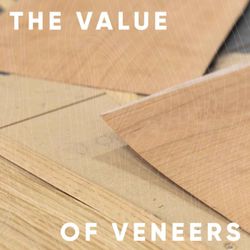
1. S4E1: The Value of Veneers with Cathy Danzer, Rio Kobayashi and Jorge Penadés
28:12||Season 4, Ep. 1Delving deep into the world of wood, featuring unexpected and timely topics from across forestry, architecture and design, the award-winning podcast Words on Wood has returned for a fourth season.A collaboration between the American Hardwood Export Council (AHEC) and Disegno, Words on Wood launched in 2021 as an upfront and wide-ranging end-to-end exploration of all things wood-related, from forestry and processing to design and disposal. Venturing into the world’s forests, sites of timber production, and design and architecture studios, the podcast examines how multiple industries intersect through a single material. Each episode is structured around interviews with leading architects, designers, educators, manufacturers, and forestry professionals who live among and care for trees on a day-to-day basis.The fourth season opens with an in-depth exploration of an often-overlooked and misunderstood timber product: veneer. Featuring contemporary designers Jorge Penadés and Rio Kobayashi, as well as Cathy Lynne Danzer of timber manufacturer Danzer, the first episode dives beneath the surface to explore the design potential of veneer and to examine how a new generation of experimental practitioners are pushing it in intriguing and playful new directions.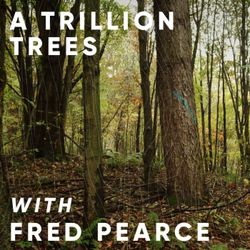
5. Special episode: A Trillion Trees with Fred Pearce
44:30||Season 3, Ep. 5In the final episode of Words on Wood season 3, we are joined by multi award-winning science and environmental writer, Fred Pearce. Fred’s groundbreaking work covering the natural world spans at least 15 books. We sit down to discuss the topics behind his latest book, “A Trillion Trees”, which gives a fascinating insight to how the world’s forests can be restored without planting and following two key premises: ensuring that ownership of the forests is vested in the people who live in them, and to give nature room.